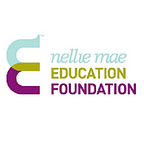Community Connections, Youth Leadership, and the Shoulders We Stand On (Romeo Romero Sigle Interview) Part 3
We got the chance to talk to Romeo Romero Sigle, Assistant Director of Pa’lante in Holyoke, MA, about the history of the organization, Pa’lante’s current youth-led and anti-racist work, and how the group has adjusted their practices and strategy during COVID-19. This is part three of a four-part blog post about Pa’lante. You can read Part 1 here and Part 2 here.
Has the school been generally supportive of the work Pa’lante is doing or has there been pushback?
In our history there was a lot of pushback. There’s definitely a large mass of people who really believe in policing and high surveillance in schools and I think restorative justice is a really scary alternative for people who really feel safe by those kinds of measures. But I think we’re entering a new era where it feels like the administration really wants to work with us and sees the value of the youth leaders who are a part of Pa’lante. And we’ve also reached a tipping point with the staff as well — now more of the staff is supportive than not. And that’s not to say that we never have problems, but those problems are more easily resolved versus it feeling like we’re constantly pushing against folks in a confrontational way.
Have you seen pushback or acceptance of restorative justice from the Holyoke community over time?
People are really proud that we have Pa’lante in Holyoke. A lot of teachers come to Holyoke because they hear there is a restorative justice program. Parents who have been involved in circle I think really see the benefit of it; we have had one or two parents involved in our community advisory board. For the most part there’s positive feelings, particularly around the Latinx community in Holyoke. I think there’s a different side of Holyoke that’s more old-school, and so we’ve had some issues with white supremacists, like doxing people and things like that. But for the most part we have a positive reputation in the community.
And I think we have a dream that there be more fluidity between the school and the community. Right now circle practice isn’t something that just anyone can do because it’s primarily housed within the school, but we have a dream of figuring out how to offer this to everyone who lives in Holyoke. But that’s a dream that we haven’t quite figured out the logistics for.
How do you and other adult allies ensure that the work Pa’lante does is student led?
Lucky for us, we’re all very steeped in circle practice which really disrupts hierarchies and power divisions. Any time a decision needs to get made, the final decision usually gets made with the whole group. It’s not like staff gets no say — we get as much of a vote as everyone else, but obviously we’re outnumbered by the students, and students are ultimately going to be the ones making the decisions. Oftentimes making any type of decision for the program requires multiple rounds of students sharing their feelings. We don’t have that strict or formal of a process, but we definitely take youth leadership seriously. We also have a youth advisory board and they’re the ones who make either smaller decisions or make the proposals that go to the big group.
Students have actually pushed back on us in certain ways. There’s certain things where we were just like “students probably don’t want to be involved in thinking about the budget” for example. But this past year students were like “why don’t we know anything about Pa’lante’s finances?” and we were like “You’re right! Let’s make the budget into a teenager friendly document and share it with you.” They can ask for transparency and we’ll respond. As adult allies, we also know we have to constantly work to undo our own internalized adultism, because regardless of the fact that we really strive to be youth-led, it’s true that the adults have power.
Your name Pa’lante is inspired by the Young Lords grassroots movement. What about their legacy inspires or informs your philosophy and practices?
What really inspired the connection between Pa’lante the organization and the Young Lords is the fact that the Young Lords was primarily led by Puerto Rican people. We also have students from lots of different Latin American countries, but we do have a very strong Puerto Rican presence in Holyoke, and I think there’s a lot of deep pride for the relationship between Holyoke and the islands of the Caribbean. And when the program got started, it just made sense to connect students into that longer legacy and remind them of whose shoulders they stand on. Also because they were youth organizers and organizing is a really important part of our program, which is really different than a lot of restorative justice programs out there, I think we really wanted to stress the importance of when young people come together, they can enact change.
We went on a field trip to New York two years ago and we got to meet a Young Lord and a Black Panther, and they took us on a tour of Harlem. And the Young Lord was really really proud and excited that students had taken up the name Pa’lante, so it was a really cool connection to make.
In our final installment, we delve into the impacts of the dual pandemics of COVID-19 and anti-Black racism on Pa’lante’s work, and how restorative and transformative justice fit into the movement for anti-racism.
